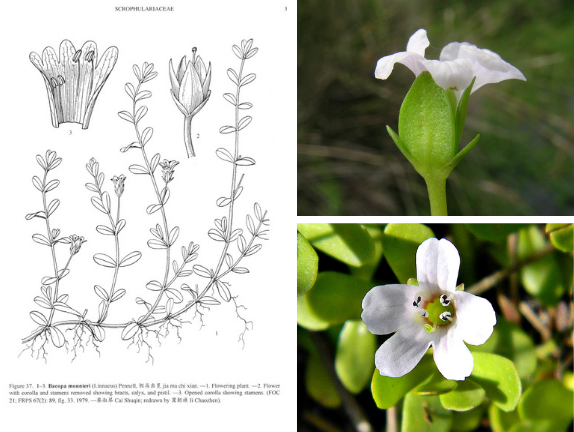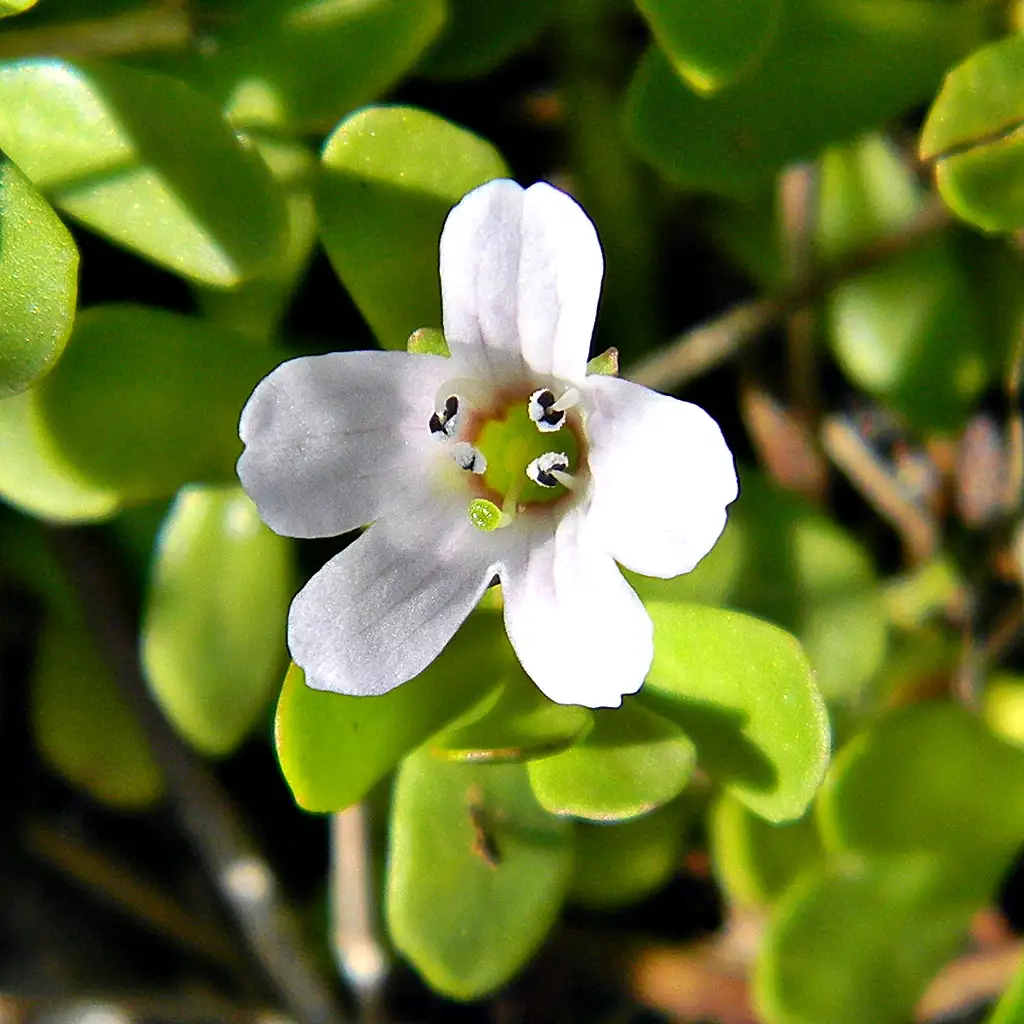Bacopa monnieri
Latin Name: Bacopa monnieri
Herb Class/Action: Nootropic, adaptogen, nervine, antioxidant, alterative, supports a healthy inflammatory response, cardiosupportive
Parts Used: dried aerial parts
Flavors: Bitter, sweet, astringent
Energetics: Cooling, light, flowing
Traditional Benefits: Brain support, memory support, mood support, digestive support, respiratory support, circulatory support, nervous system support, endocrine support, stress support
As a cognitive tonic that helps to clear excess ‘heat’ and stagnation in the mind, Bacopa is a traditional Ayurvedic herb indicated to support brain and glandular function, bringing order and clarity to one’s internal environment.
When we’re stuck focusing on the small details and lose sight of the bigger picture, bacopa helps us take a step back, allowing space to reconnect to ourselves and the beauty around us. There’s just something special about this ancient remedy — with roots dating back to 5000 B.C. Bacopa’s traditional use begins with Ayurveda’s spiritual practices. This delicate, white-flowering plant has been gaining significance ever since for everything from supporting healthy thyroid function to helping us expand our consciousness.
Also known as Water Hyssop, the place in which this plant grows can tell us a lot about its indications as a match for one’s internal “tissue state.” Bacopa is a light, flowing herb found in wet environments across Eastern India, Australia, Europe, Africa, Asia, and North and South America. This water-loving, flowering bush thrives in wetland environments and has been shown to remove pollutants from the areas in which it grows. In traditional herbalism, Bacopa is similarly best suited to a ‘boggy’, damp, stagnant or backed up tissue state, where elements of this stagnation may have led to a backlog of toxins that have affected congested tissues or glands.

Bacopa helps us humans with excess ‘dampness’ in the mind, and is indicated for someone with a lot of built up ‘heat’ which is impeding them from thinking as clearly as they’d like – this particular dampness or fogginess is often related to HPAOT axis function, when thyroid health needs to be supported on an overall tissue state level. Bacopa is an excellent herb to help clear the mind of someone who feels scattered and all over the place, and could use some help bringing order to their internal environment.
Bacopa contains alkaloids and saponins—both of which help with cognitive support, mood support, and nervous system support. Its main uses are to help support healthy memory function and focus, often used as a meditation aide or nootropic. It’s also been shown to support the body’s natural and normal production of T4 thyroid hormone, suggesting HPAOT benefits for healthy glandular and metabolic function.
You know that person in your life who seems to know you better than you know yourself? They’re able to sense something’s up and tend to your needs before you even recognize those needs exist. Bacopa is that friend. With the ability to balance all doshas, bacopa can help with your natural ability to ground into a calm, or, do seemingly the opposite and help us access our energy reserves depending on your needs at the time.
Another one of her strengths? Bacopa plays well with others. Typically consumed in capsule form, bacopa is often found in nootropic supplements, paired with adaptogens like gotu kola or lion’s mane for extra cognitive and mood support.
In Ayurvedic tradition, bacopa is said to be the embodiment of Lord Brahma (the Hindu god of creation) for its association with consciousness, knowledge, memory, and focus.

